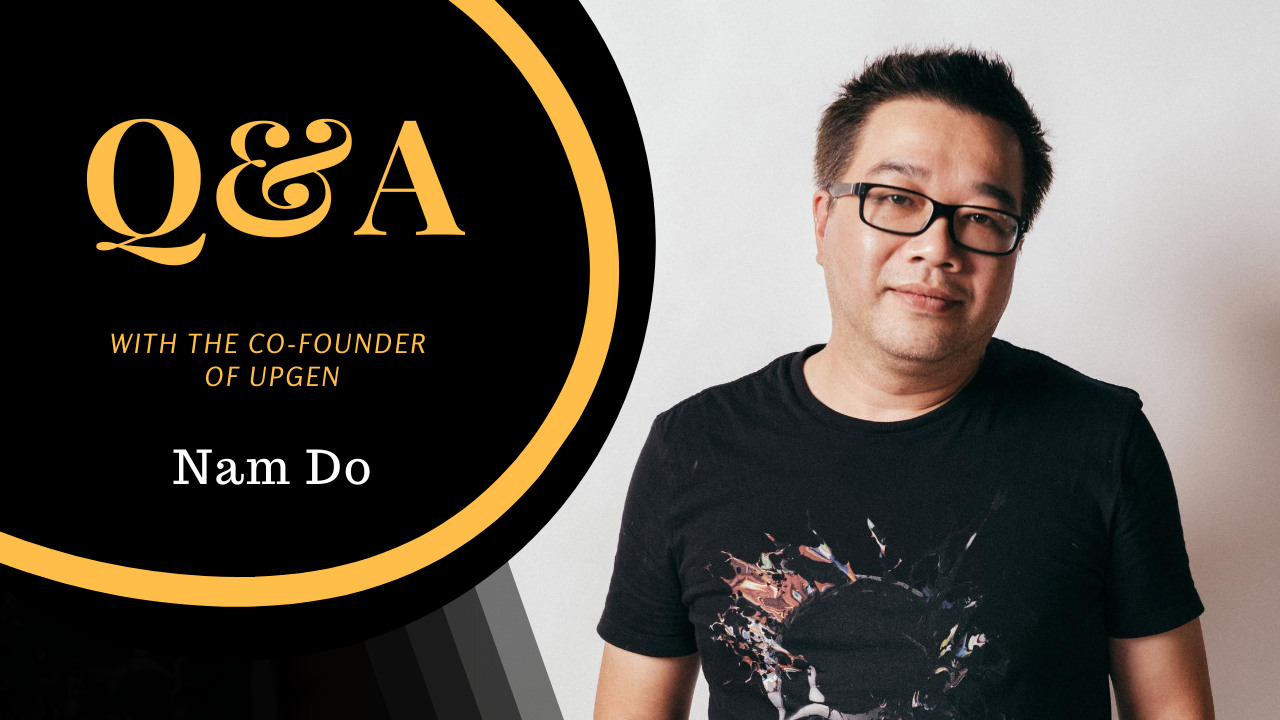- Nam Do is the co-founder of flexible workspace brand UPGen, which launched its first location in Vietnam in 2016.
- In a few short years, the company has grown to 18 locations with a targeted approach that serves both corporates and startups.
- In this Q&A, Nam talks about UPGen’s ambition to become one of the home-grown major platforms helping companies to grow in Southeast Asia.
Nam Do discovered coworking while running a tech startup in Silicon Valley. The space served its purpose but Nam felt something critical was missing: financial stability. After a number of years using and studying flexible space, he decided to switch from coworking member to coworking founder, and launch his own brand with a few careful modifications.
In this Q&A for Allwork.Space, Nam discusses the lessons he has learned since opening his first flexible workspace in Hanoi, Vietnam in 2016 alongside co-founder Tuan Phan, and how UPGen has built on its early foundations to become a thriving brand with 18 (and counting) locations across Southeast Asia.
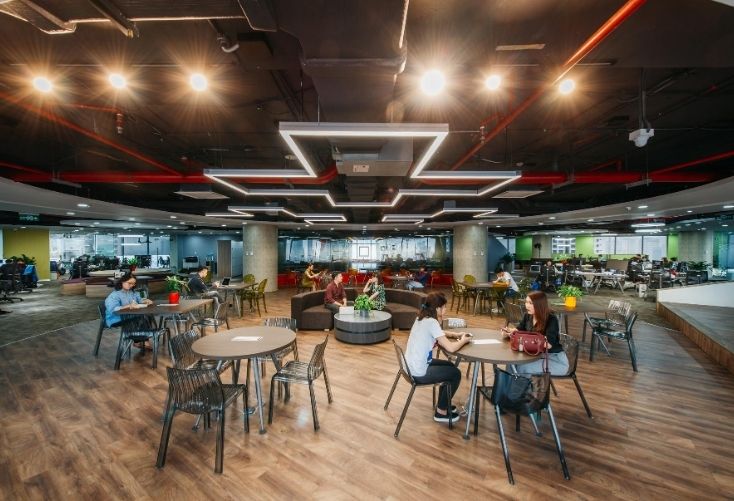
Bringing in a large anchor tenant secures operational funding, and the remaining space can be set aside as coworking for individuals and startups. This approach enables UPGen to play a vital part in helping local startups and talented entrepreneurs “take flight” and scale, which for Nam, liberates the “real innovation that adds value to this world”.
Allwork.Space: Tell us about UPGen and how you came into the world of coworking.
Nam Do: While I was running a bioinformatics and technology company in Silicon Valley, our office used to be in a coworking facility. After spending some time there, I realised there were a few crucial issues facing the traditional coworking model, such as the profitability and sustainability of the business, as well as brand dilution for member companies. I spent five years seeing if anyone was addressing these issues and found that nobody in the market was filling in the gaps.
In 2014, I returned to Vietnam and was investing in start-ups in the local market. I witnessed the strong potential of the country’s economy and its rapidly developing start-up ecosystem but realised that we were not producing many successful start-ups. We’ve got great technical talent and some wonderful business ideas in Vietnam but many of these start-ups don’t take flight as they are unable to successfully grow their business beyond the initial stage.
With my knowledge of the local landscape, I felt the crux of the problem was that these companies lacked the flexibility to easily scale up or scale down as they navigate through different stages of growth.
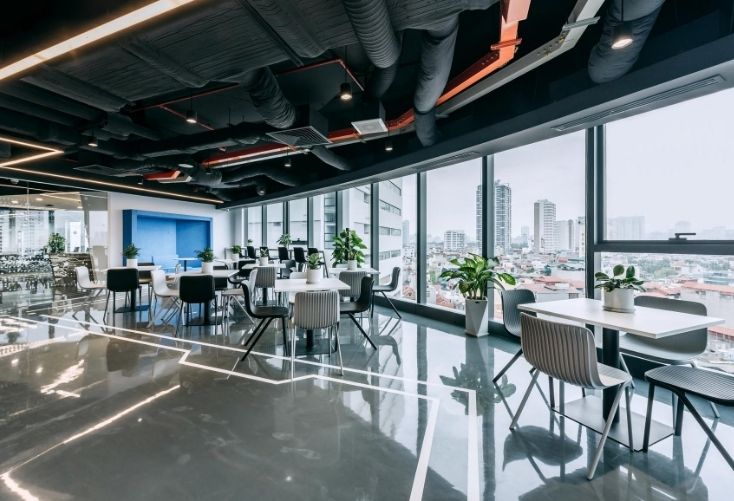
Combined, all these factors were behind the reasons why we created UPGen, a flexible workspace operator rethinking the world of work and helping solve business problems beyond the traditional workspace. Instead of helping these businesses one at a time, we wanted to provide a platform to gather them and bring in resources that can facilitate and empower them to do what they do best. More than just the physical workspace, we provide solutions that change the way the backend of business is done, unshackling them from the everyday operational pain points of their business so companies can focus their resources on the real innovation that adds value to this world.
Allwork.Space: How is your model addressing the need for profitability and financial sustainability?
We cater to a vibrant ecosystem of ambitious innovators – individuals, start-ups, scale-ups, as well as large corporations.
Our site typically is larger than a coworking space, at least 10,000 sqm in size or sometimes the entire building. An anchor tenant, usually a large corporation, tends to occupy about half of the site and as the company scales up over time, it takes up the rest of the space. Until then, we turn the extra space into a coworking space. This approach helps us to address both start-ups and corporations: short-term flexibility and scalability respectively.
Our unique model is profitable and financially sustainable for us as the operator. The delta on headcount in our model works best if the majority of our customers are large corporations who typically sign on multi-year leases. About 90% of our revenue comes from large corporates; this means it does not over leverage us as an operator.
What are some of the lessons you learned from opening your first coworking space, and how did you apply those to your future workspaces?
Coworking space operators need to think carefully about their model and think twice before blindly expanding their footprint at pace. A one-size fits all approach is unlikely to succeed in a region as diverse as Southeast Asia, and Asia at large.
When we first started out in Vietnam, it was our deep local knowledge and strong local relationships in the market that gave us the competitive advantage over other workspace operators. That is a lesson UPGen brings to any other markets we subsequently moved into or are potentially looking at entering, making sure we know exactly what businesses need in the respective markets and what we can offer them.
To avoid an economic bubble, coworking space operators also need to think above and beyond their role as real estate managers. Instead of building their own brand around the aesthetics of the space they offer, or the social events available to members, they should be more focused on providing the infrastructure solutions fast-growing companies need to be successful. This ensures that as a coworking space operator we can grow and evolve together with the companies that we are helping so that we will remain relevant to them even as the business moves on to the next phase of growth.
Allwork.Space: How did you scale the company? Was it always part of your startup strategy?
Our ambition is for UPGen to become one of the home-grown, major platforms helping companies to grow in Southeast Asia.
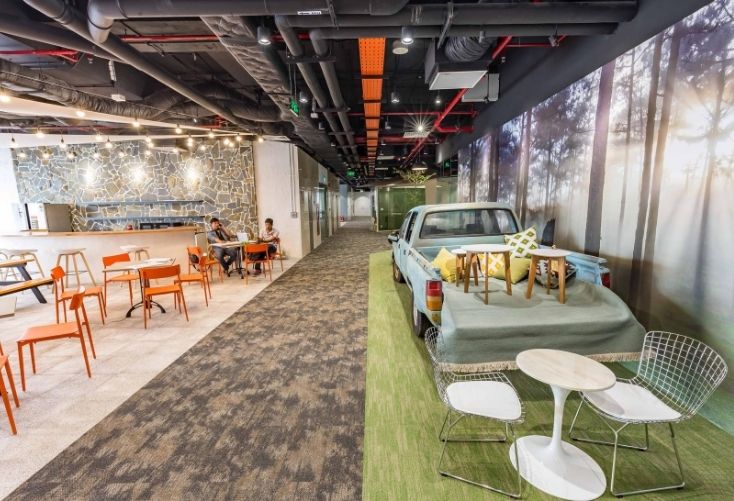
In this region, each market has a very different set of challenges. A one-size fits all approach is unlikely to succeed. We apply a clear set of criteria before expanding into any market. We look at the rate of growth in the market, the cost of space and the supply of real estate space, the presence of fast-growing local companies and their ability to pay for commercial real estate.
Local knowledge of challenges and understanding of both market behaviours and business drivers on the ground in each location is essential in unlocking success and profitability as well. This is because each of the major cities and hubs in this region have differing infrastructure characteristics and challenges. Deep local knowledge and strong local relationships are key.
We see opportunity in markets that produce local, fast-growing businesses such as Indonesia, Thailand, the Philippines, and potentially Myanmar. We will definitely have presence in the region’s hubs of Singapore and Hong Kong as well, but we will not be looking to dominate there.
Allwork.Space: With regard to Covid-19, how have you adapted to the current situation?
The Vietnamese government’s early efforts to contain the COVID-19 outbreak has been critically helpful. Their quick action gave businesses clear direction, meaning we are able to quickly communicate and implement our business continuity planning (BCP) measures to clients.
We had to change our procedures, putting in place measures for physical distancing and taking additional sanitisation as well as deep cleaning measures across all our sites.
The density of the people in our space certainly reduced. Most of our customers are large corporates with thousands of employees, and they have implemented split-site operations similar to what we have seen in many markets around the globe.
This lowered density across our space, however, has not really affected our revenue. There are two key reasons for this. First, we have longer-term agreements with many of our corporate customers and second, the “lockdown” in Vietnam thankfully did not last very long. Additionally, as we operate multiple sites, we were able to help our clients with their split-site operations and offer a second site for start-ups with employees who are unable to work from home.
For start-ups who may not have the internal resources, we have produced BCP templates for them to adapt to their own organisation, which is one of the 360-degree workplace solutions we offer.
Allwork.Space: What changes and trends are you seeing now, and how do you think this will evolve over the near future?
The ‘traditional’ coworking model started to show some cracks in the past year, especially around profitability and sustainability of the business. The COVID-19 outbreak has amplified this trend. We expect this will be the last straw for the ‘traditional’ coworking model.
Even though the coworking space concept was born out of a recession, that does not mean it is immune to the impact of crisis, whether that’s a significant downturn or a recession. With physical distancing and lockdown, we would expect to see key customers of the existing models – freelancers, start-ups, entrepreneurs – working at home. Operators whose majority of their business is in coworking will get hit the hardest at a time when they are not cash-rich and unlikely to be able to sustain current levels of demand for long.
We have also observed a few key trends emerging from the COVID-19 outbreak.
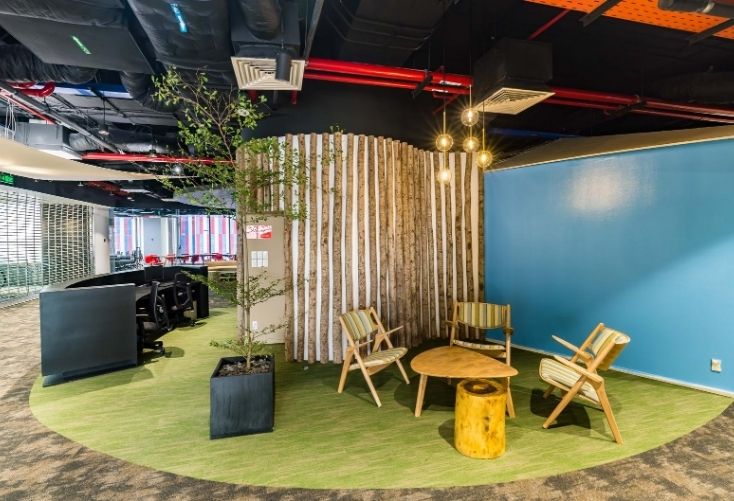
First, we have seen higher interest from corporates in flexible workspace. Corporates need the flexibility to scale up or down easily as they navigate through uncertainties and turn the capital-intensive needs of owning or renting an office into more affordable operating expenses.
Second, the need for flexible workspace is not only limited to new economy / digital economy-focused companies. We have seen ‘traditional’ corporates taking advantage of flexible workspace’s benefits. For example, we recently had a global healthcare leader moving into our space.
Allwork.Space: Looking ahead, what do you think the longer-term impact will be on the flexible space industry?
The way investors look at the coworking sector has evolved. Over the past year, we saw investors become less upbeat on the sector. This has led investors to look beyond square meters and the number of members as key metrics. Instead, they are paying closer attention to the business model as well as key economic fundamentals.
The profitability and sustainability of the coworking model is now at the top of investors’ checklists. New models that offer solutions tailored to each market’s fundamentals and business drivers will see much more interest from investors.



 Dr. Gleb Tsipursky – The Office Whisperer
Dr. Gleb Tsipursky – The Office Whisperer Nirit Cohen – WorkFutures
Nirit Cohen – WorkFutures Angela Howard – Culture Expert
Angela Howard – Culture Expert Drew Jones – Design & Innovation
Drew Jones – Design & Innovation Jonathan Price – CRE & Flex Expert
Jonathan Price – CRE & Flex Expert
